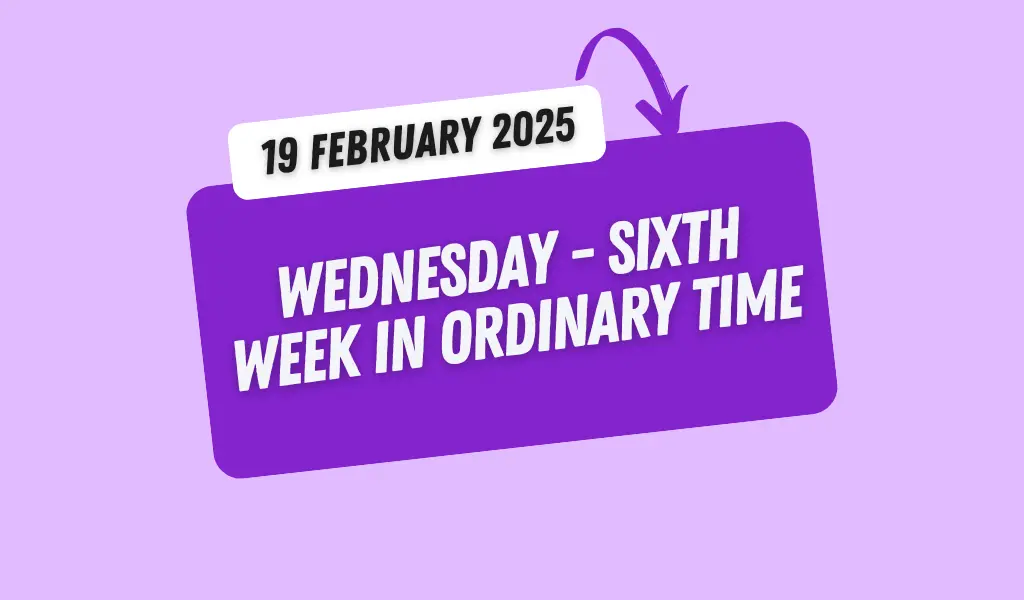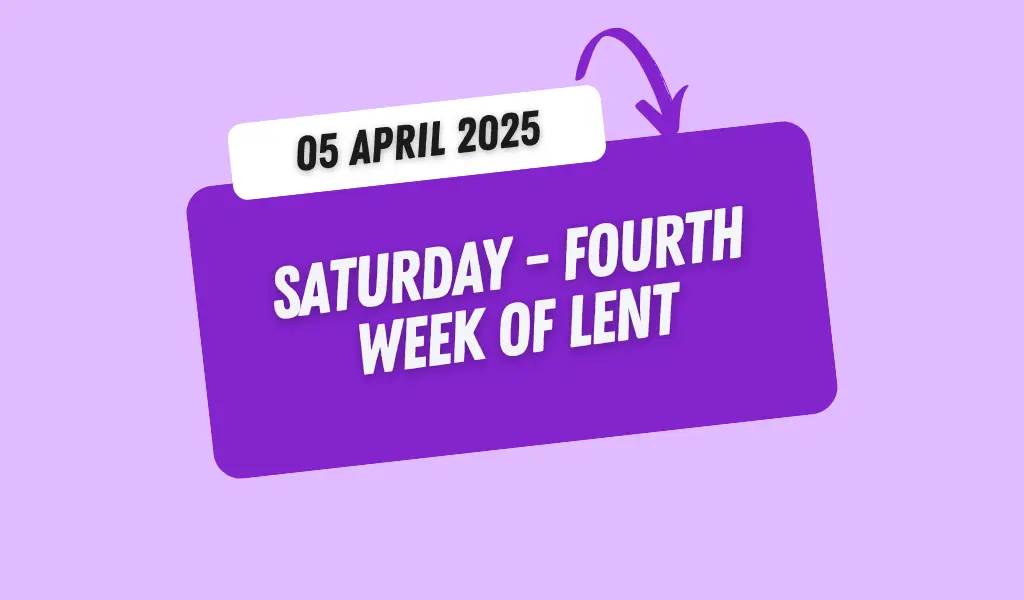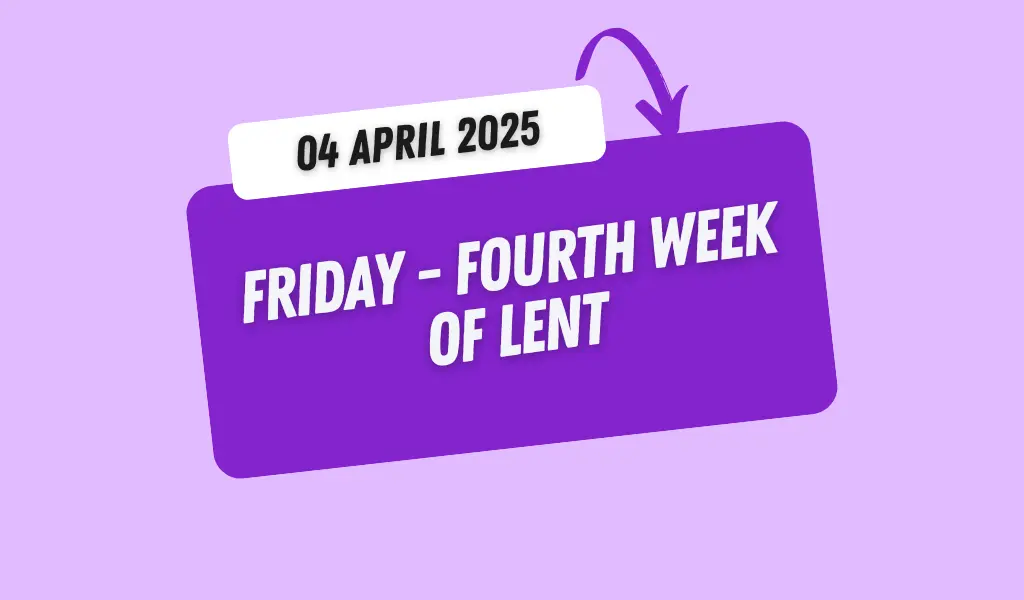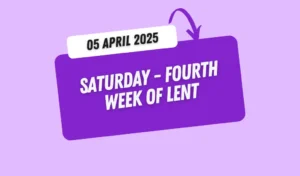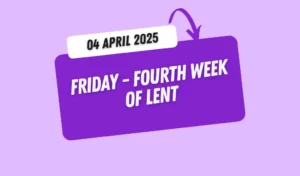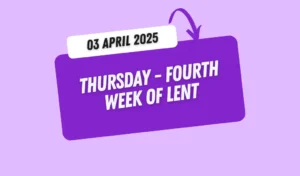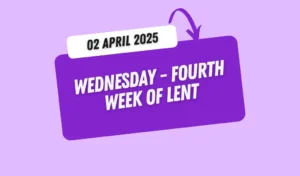Catholic Mass Readings and Reflection February 19, 2025
6th Week in Ordinary Time
19th February 2025 (Wednesday)
Psalter: Week 2
Readings of the Day
First Reading: Genesis 8:6-13, 20-22
At the end of forty days Noah opened the hatch he had made in the ark, and he sent out a raven, to see if the waters had lessened on the earth. It flew back and forth until the waters dried off from the earth. Then he sent out a dove, to see if the waters had lessened on the earth. But the dove could find no place to alight and perch, and it returned to him in the ark, for there was water all over the earth. Putting out his hand, he caught the dove and drew it back to him inside the ark. He waited seven days more and again sent the dove out from the ark. In the evening the dove came back to him, and there in its bill was a plucked-off olive leaf! So Noah knew that the waters had lessened on the earth. He waited still another seven days and then released the dove once more; and this time it did not come back. In the six hundred and first year of Noah’s life, in the first month, on the first day of the month, the water began to dry up on the earth. Noah then removed the covering of the ark and saw that the surface of the ground was drying up. Noah built an altar to the LORD, and choosing from every clean animal and every clean bird, he offered burnt offerings on the altar. When the LORD smelled the sweet odor, he said to himself: “Never again will I doom the earth because of man since the desires of man’s heart are evil from the start; nor will I ever again strike down all living beings, as I have done. As long as the earth lasts, seedtime and harvest, cold and heat, Summer and winter, and day and night shall not cease.”
Psalm 116:12-13, 14-15, 18-19 (R. 17a)
R/. To you, Lord, I will offer a sacrifice of praise.
Gospel Acclamation
V/. Alleluia
R/. Alleluia
V/. May the Father of our Lord Jesus Christ enlighten the eyes of our hearts, that we may know what is the hope that belongs to his call.
R/. Alleluia.
Gospel: Mark 8:22-26
When Jesus and his disciples arrived at Bethsaida, people brought to him a blind man and begged Jesus to touch him. He took the blind man by the hand and led him outside the village. Putting spittle on his eyes he laid his hands on the man and asked, “Do you see anything?” Looking up the man replied, “I see people looking like trees and walking.” Then he laid hands on the man’s eyes a second time and he saw clearly; his sight was restored and he could see everything distinctly. Then he sent him home and said, “Do not even go into the village.”
Daily Gospel Reflection
Wednesday – 6th Week in Ordinary Time
Main Point: In life, all of us suffer from some degree of blindness. Often we do not see God or others or our own self with clear sight. We need healing from Jesus
Life becomes meaningful when there is Progress, change, and renewal. And these can be lasting when it is a steady and gradual process. The subsiding of the flood in the time of Noah was a gradual and steady process. It took time.
The healing of the blind man in the gospel was again a gradational process. From the state of total blindness, he came to be partially blind when he could “see people looking like trees and walking”. Then he became fully sighted when he could “see everything distinctly”.
Many questions may remain unanswered such as why Jesus led him outside the village. Why did he not heal at a stretch but in a second phase or attempt? Why did he order the healed blind man not to go into the village? et cetera. These may not be unimportant. However, we need not make speculations.
But we can draw some plausible lessons and indications. One lesson is that our recovery and restoration is a process that must be progressive and gradual. We need not expect a sudden and total change all of a sudden and at one shot.
The fact that Jesus took him outside the village before the healing and he told him not to go into the village after the healing shows a dissociation from the village. This may indicate that Jesus did not want the blind man to be unnecessarily disturbed or distracted by others. Whether before or after the healing, the presence of others may create a situation of needless discussions or apprehensions, or judgments. This can take away the main focus on healing. Dissociation from such a situation can make the blind man more focused on his blindness and on God’s compassion that restores his sight.
Being away from the people can also avoid all the clamour and glamour of applause and popularity at the healing. What is important is not that the people sing his laurels but the blindness is removed. There is no self-seeking glory.
Further, all the simple details in the healing episode indicate the personal touch and concern of the Lord. He took the blind man by the hand. He led him outside the village. He put a spittle on his eyes. He laid his hands on the man. Then he laid his hands on the man’s eyes a second time. He restored sight to him. Then he sent him home.
Let us take note of blindness, whether total or partial. At times we may be totally blind, filled with egoism or indifference. We may fail to see God, others, and our own selves. At other times, we may be partially blind by prejudices and lack of clarity. We may misjudge and misinterpret others.
My Practice: Often, we are blind. We do not see God and good. We do not see God as our liberator and restorer. We do not see others with a fraternal eye. We do not see ourselves honestly. We need to regain our sight
